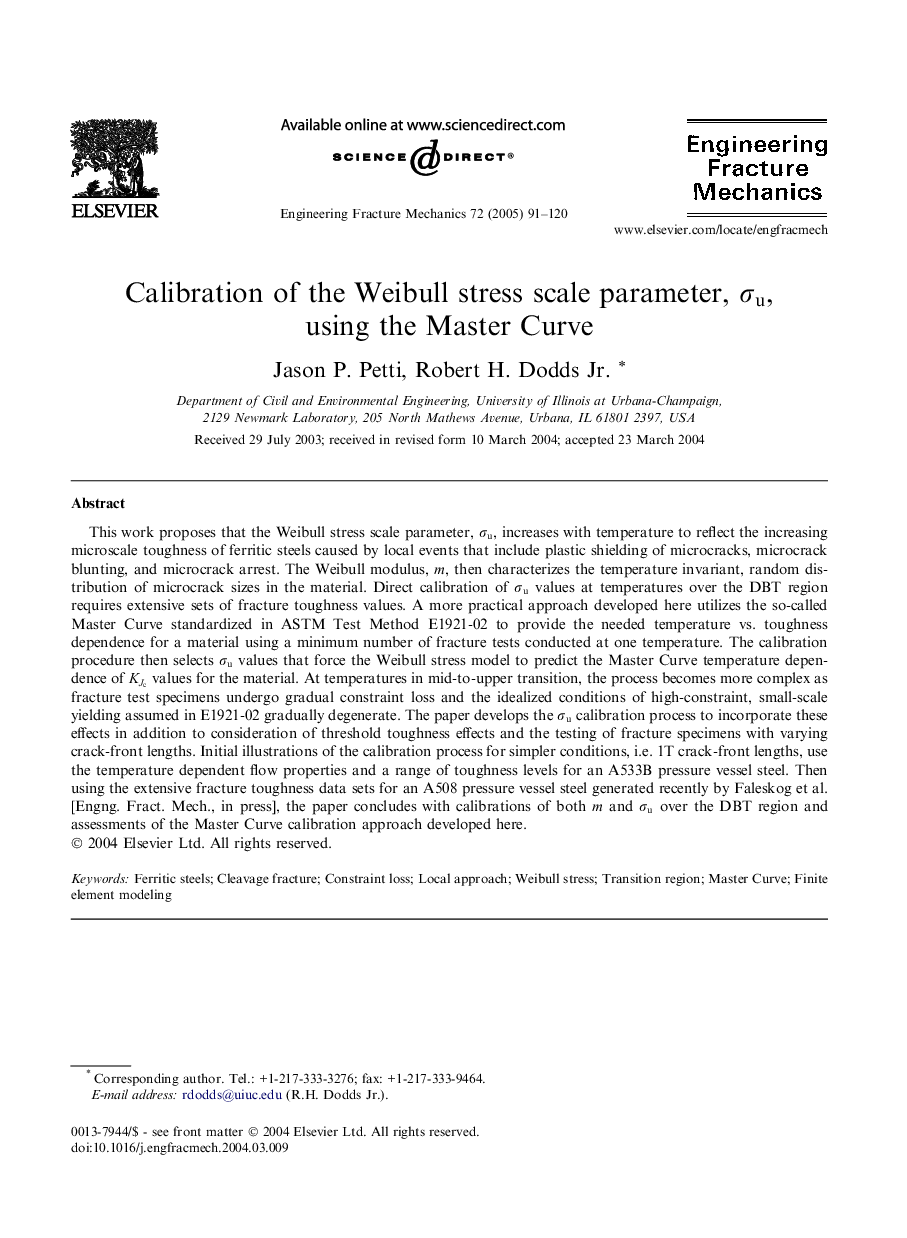| Article ID | Journal | Published Year | Pages | File Type |
|---|---|---|---|---|
| 10416320 | Engineering Fracture Mechanics | 2005 | 30 Pages |
Abstract
This work proposes that the Weibull stress scale parameter, Ïu, increases with temperature to reflect the increasing microscale toughness of ferritic steels caused by local events that include plastic shielding of microcracks, microcrack blunting, and microcrack arrest. The Weibull modulus, m, then characterizes the temperature invariant, random distribution of microcrack sizes in the material. Direct calibration of Ïu values at temperatures over the DBT region requires extensive sets of fracture toughness values. A more practical approach developed here utilizes the so-called Master Curve standardized in ASTM Test Method E1921-02 to provide the needed temperature vs. toughness dependence for a material using a minimum number of fracture tests conducted at one temperature. The calibration procedure then selects Ïu values that force the Weibull stress model to predict the Master Curve temperature dependence of KJc values for the material. At temperatures in mid-to-upper transition, the process becomes more complex as fracture test specimens undergo gradual constraint loss and the idealized conditions of high-constraint, small-scale yielding assumed in E1921-02 gradually degenerate. The paper develops the Ïu calibration process to incorporate these effects in addition to consideration of threshold toughness effects and the testing of fracture specimens with varying crack-front lengths. Initial illustrations of the calibration process for simpler conditions, i.e. 1T crack-front lengths, use the temperature dependent flow properties and a range of toughness levels for an A533B pressure vessel steel. Then using the extensive fracture toughness data sets for an A508 pressure vessel steel generated recently by Faleskog et al. [Engng. Fract. Mech., in press], the paper concludes with calibrations of both m and Ïu over the DBT region and assessments of the Master Curve calibration approach developed here.
Keywords
Related Topics
Physical Sciences and Engineering
Engineering
Mechanical Engineering
Authors
Jason P. Petti, Robert H. Jr.,
